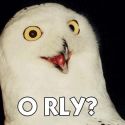We live in a world that privileges written information over oral information.
It’s a bias of the eyes over the ears, and it seems to include our entire conceptualization of knowledge. Just look at the metaphors we use in our everyday language: A bright person is a smart one, as is a brilliant person. (Brilliance has all but lost its meaning except that denoting intelligence.) We talk of the Enlightenment as the birth of modern science and enlightened people as the smartest among us. We say, “Do you see what I mean?” and “Can you picture it?” even when there’s nothing to be really seen or pictured.
Why is this? Of course, it’s an apt metaphor: In the dark, we can’t see, and we don’t have knowledge of what might be lurking. In the light, we can see, and we know. But why privilege the eyes over the ears? Human language is, after all, primarily manifested as sound.
Perhaps this bias has roots in the traditional permanence of records. Things that were chiseled in stone, brushed in ink or set in type were meant to last a long time. The letters couldn’t fritter off into oblivion, get easily erased and be rewritten, etc. But nowadays, more and more of our written information is not recorded in the same way. Electronic information is malleable. Sure it’s redundant over any number of Google-sized caches (and, if you put stock in the 2014 novel Whisky Tango Foxtrot by David Shafer, perhaps being stored at the bottom of the ocean for future nefarious purposes), but in everyday cases, words can be reappropriated, edited and republished with supreme ease. If I change my mind about a blog post, I can revise or even unpublish it. If I am angry with a commenter, I can change their words. On Facebook, if I am embarrassed by something I posted earlier, I can delete or change it. Moreover, we have just so much information streaming by in blogs and social media, that what’s here today can be very difficult to find tomorrow.
Maybe today’s written information isn’t much more permanent than oral information after all. (And that isn’t even to speak of sound and video recordings.) I think that means it’s time to put more stock in other modalities of information transfer, don’t you?
 Follow
Follow

